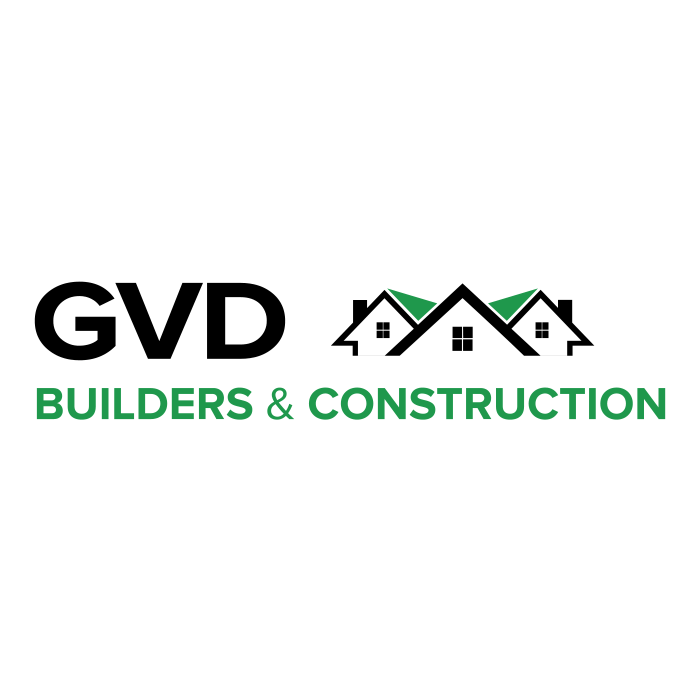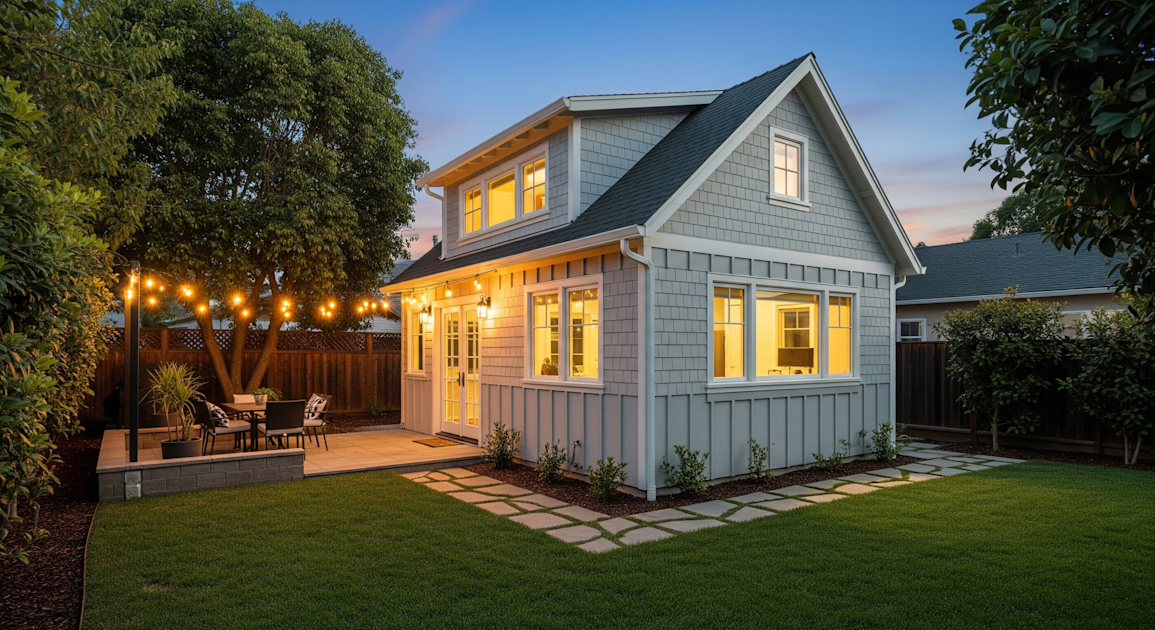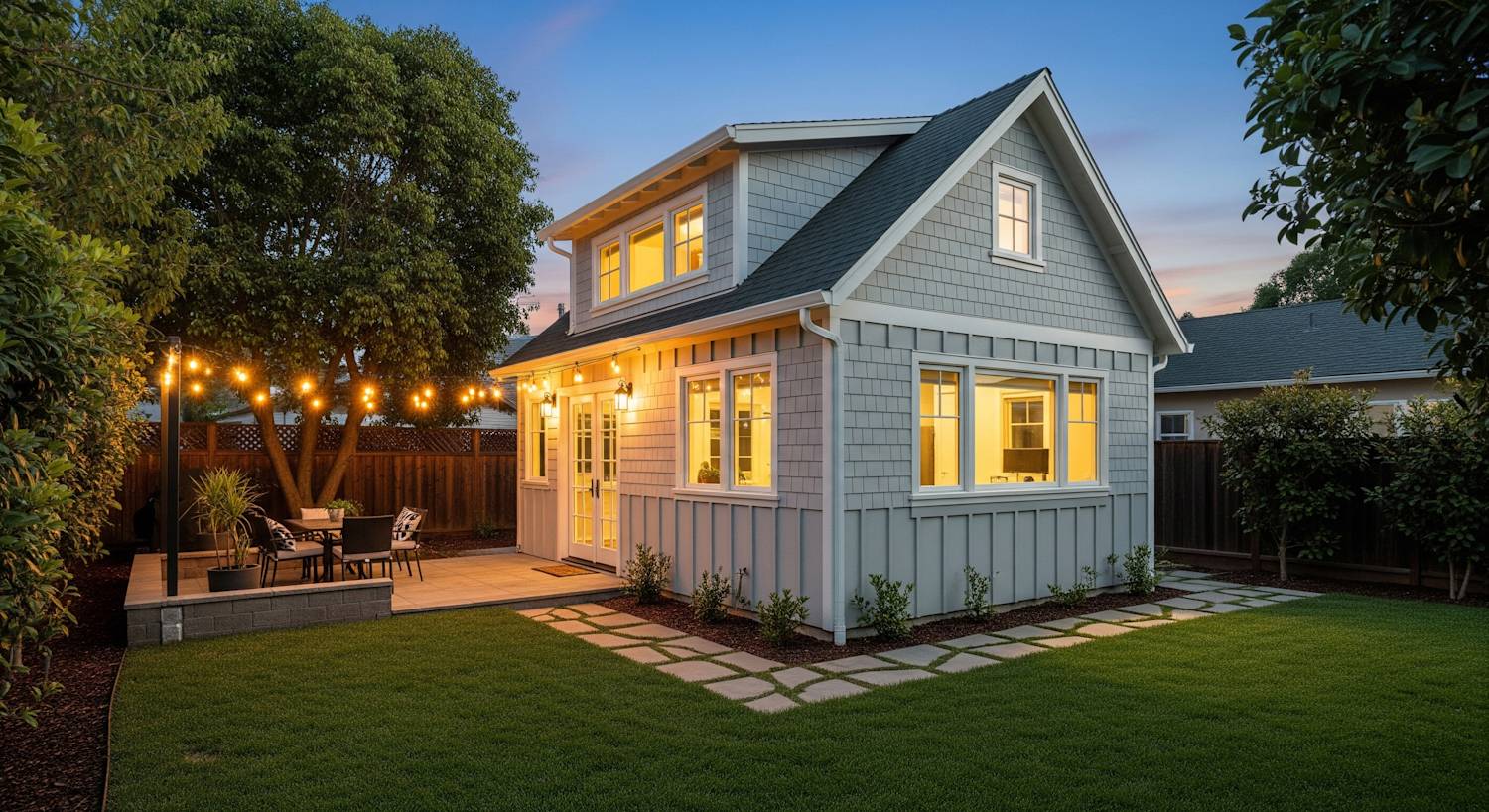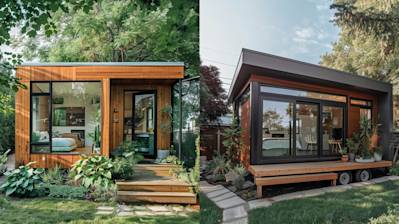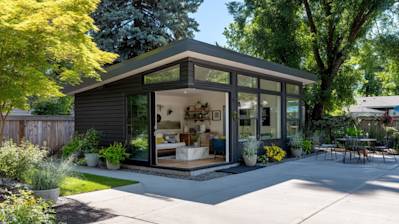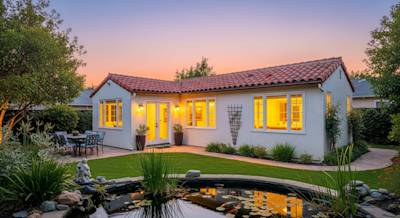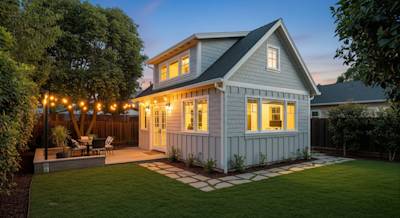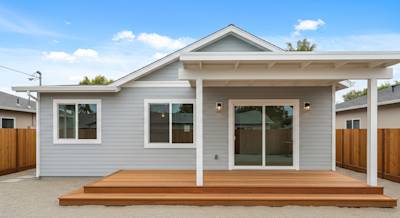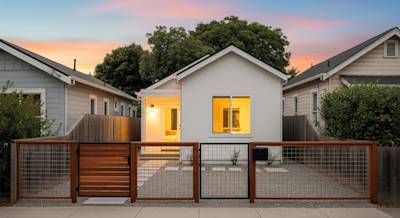Remodeling or repurchasing homes with indecisiveness towards the family’s future needs can trigger dilemmas. The perfect way to navigate through any given circumstance is by investing in an in-law suite. This comprehensive guide provides you with all the necessary details about in-law suites.
Understanding the Concept of an In Law Suite
Initially, an in-law suite was designed to accommodate parents or in-laws who required assistance and care. However, the concept has evolved with time and changed the course of housing dynamically.
An in-law suite, also referred to as a "mother-in-law suite" or "secondary suite," is essentially a private space for guests or relatives within or near your property grounds. This space can be an existing room, like a converted basement or attic, a repurposed garage, or an entirely new addition to your home.
The Constituents of an In-law Suite
While the configuration might vary, a standard in-law suite contains these basic elements:
- Living Room
- Bedroom
- Kitchen or Kitchenette
- Bathroom
Some luxury in-law suites even boast special amenities like laundry rooms or walk-in closets.
Why You Should Consider Having an In-law Suite
Not just limited to in-laws and parents, an in-law suite can be a game-changer for various reasons:
- Flexible for Different Needs: The in-law suite can serve as a private accommodation for your adult children studying nearby, or even a potential roommate.
- Home Office Space: In the era of remote working, the in-law suite makes for a perfect home office, offering a professional, distraction-free environment.
- Value Addition: Potential home buyers appreciate houses with this additional luxury, making it a significant value addition to your property.
- Income Generation: You can even rent out this suite for additional income.
Steps to Building Your In-law Suite
Planning and Zoning
Before you commence construction of your in-law suite, you need to ensure that your local zoning ordinances permit such structures.
Budgeting
Your in-law suite budget can vary based on the space availability, type, and quality of the amenities you want to provide.
Designing and Construction
Below is the summarized process for designing and constructing the in-law suite:
- Evaluate the property space
- Design the floor plan
- Hire professional contractors
- Source necessary construction materials
- Begin construction
Finishing
A professional-finishing touch includes painting, flooring, and installing appliances and fixtures, transforming the space into a comfortable retreat.
The Importance of Professional Renovation Services
A DIY approach can sometimes lead to an unfortunate disaster. Engaging an experienced constructor brings several benefits:
- Guidance on local zoning ordinances
- Expertise on handling complex construction aspects
- Quality assurance and durability
- Timely completion
- Stress-free renovation experience
Features of a Well-Designed In-law Suite
A perfectly designed in-law suite should cater to everyone's needs, taking into consideration both comfort and functionality:
- Accessibility: The suite should be easily accessible, and contain essential facilities on the ground floor for seniors.
- Privacy: Maintaining privacy for both the homeowners and the residents of the suite is vital.
- Soundproofing: Soundproofing ensures that everyone can enjoy their space without any disturbances.
- Storage: Ample storage options are a necessary addition to any living space.
Frequently Asked Questions about In Law Suite
What is the Difference Between an In-Law Suite and a Guest House?
While both offer additional living space, there are key differences between the two. An in-law suite is usually part of the main house or attached to it, with a separate entrance for privacy. A guest house, on the other hand, is a detached unit separate from the primary home. Guest houses may also lack full kitchens and they are often used for temporary stay, whereas an in-law suite is designed for long-term living.
What Are the Legal Requirements for Building an In-Law Suite?
Legal requirements can vary greatly based on your location. Zoning laws, building codes, homeowners association guidelines, and other legal specifications need to be assessed prior to building an in-law suite. Permits will likely be needed for construction and it's best to consult with a local architect or builder who's familiar with such provisions in your area.
Can I Rent Out My In-Law Suite?
In many locations, you can rent out your in-law suite, but it is important to check local laws regarding rental properties first. Some areas may require you to obtain a landlord's license while others might have restrictions on renting out accessory dwelling units. Always ensure you're following the legal guidelines for your area.
Does an In-Law Suite Add Value to My Home?
Typically, yes. An in-law suite can add significant value to your home. Multiple factors determine how much value gets added, including the quality of the suite, its size, and the demand for such accommodations in your market area. In a housing market where space is at a premium, having an in-law suite can make your home more attractive to potential buyers.
Can an In-Law Suite be Used for Purposes Other Than Housing Family?
Absolutely! While "in-law suite" implies use for family members, these versatile spaces can also serve many other purposes. It can be used as a home office, an area for hobbies, a personal gym, a rentable accommodation, and more. The possibilities are endless depending on your individual needs and creativity.
Who Generally Lives in an In-Law Suite?
While traditionally used for aging parents (hence being called an 'in-law suite'), these spaces can accommodate any type of long-term guest. It can be a perfect solution for an adult child saving for their own place, a live-in caregiver, or even for housing friends or relatives visiting for an extended period.
How Much Does It Cost to Build an In-Law Suite?
The cost greatly depends on a number of factors such as the size of the room, the quality of fixtures and fittings, where you live, and whether it's a new build or a conversion. For a ballpark figure, HomeAdvisor puts the average cost to add an in-law suite between $32,700 and $63,000. Professional contractors or architects in your area can provide a more accurate estimate based on your unique requirements.
Do I Need a Contractor to Build an In-Law Suite?
While it's technically possible to do it yourself, unless you have significant experience in building or renovation, hiring a contractor is advisable. There are complex aspects involved in home additions –like electrical wiring, plumbing, and adhering to local building codes– that are best handled by professionals. Plus, a contractor will help ensure the suite complements the style and design of your existing home.
Pros of In-Law Suites
Financial Advantages
Increased Property Value
One of the most significant advantages of investing in an in-law suite is the potential for a substantial boost to your property value. Whether you decide to build an entirely new addition or renovate an existing space like the basement, financially, you're likely to see a good return on investment when it comes time to sell.
Additional Income
Renting out the space can provide a consistent source of income. This is particularly beneficial if you don't have family members who need to use the suite. You can rent it out to long-term tenants or consider a short-term rental platform like Airbnb.
Providing a Comfortable Space for Aging Parents
An in-law suite can be the perfect compromise for aging parents who may want their independence but could benefit from having close family members nearby. Privacy is maintained, yet help and support can be provided quickly if needed.
Ideal for Guests
In-law suites act as a private getaway for guests. Instead of a standard guest room, your guests have an entire suite to themselves, complete with a kitchen, bathroom, and living area. This is especially beneficial if you frequently host family and friends for extended stays.
Flexibility in Use
Whether it's an art studio, a home gym, or a private office, an in-law suite can serve many purposes. If you don't need it for aging parents or guests, the extra space could be a significant benefit for your family.
Cons of In-Law Suites
High Initial Cost
Creating an in-law suite can be expensive, with costs depending on factors such as whether you are renovating an existing space or building a new addition, the size of the suite, and the quality of the appliances and finishes you choose. You'll need to take these costs into account before deciding to add one to your home.
Planning Permission and Building Codes
Building an in-law suite often comes with legal considerations. For instance, local zoning laws might prohibit the addition of a secondary suite, or there may be restrictions on the size and type of suite you can build. Navigating the world of permits and regulations can be a daunting task.
Ongoing Maintenance Costs
While you can potentially rent out the suite for additional income, renting also means playing the role of a landlord, which includes dealing with repairs, updates, and maintenance. The in-law suite will have its need for upkeep, which will have to be managed alongside the rest of your home.
Potential Strain on Relationships
While an in-law suite can provide a wonderful space for family members, it could potentially put a strain on relationships. If boundaries are not set early on, it might lead to unnecessary tension, especially if privacy is not respected.
Loss of Privacy
Having a separate space on your property could mean a loss of privacy. This might not be significant if the suite is used occasionally for guests, but it could become a concern if you have long-term tenants or family members living in the suite.
In-law suites can be a fantastic addition to your home, but it's essential to balance the benefits with the drawbacks. An honest assessment of your needs and potential challenges can help you make a decision that suits your situation best.
Summary
Overall, the concept of an "in law suite" is undeniably gaining popularity in recent times. This type of living arrangement offers a great deal of privacy, which can help maintain the family harmony especially when the home is housing multiple generations. Trust and respect is nurturbed as each party acknowledges boundaries. Not to mention, the additional space in an "in law suite" can also be used for many other purposes, like a home office or hobby space.
Financially, an "in law suite" is a wise decision. It can be a cost-saving alternative to elderly care facilities or expensive rents for students. It also significantly increases the property’s resale value for those who might later consider selling the house. Plus, if the family circumstances change, the suite can even convert into a source of rental income.
The best thing about the "in law suite" is that it’s adaptable. It can provide a comfortable space for your loved ones to live while still within reach for family interactions. Aging relatives or an adult child returning home can greatly benefit from this arrangement which provides independence yet proximity to the family. Above all, an "in law suite" strengthens family connections, putting the comfort and convenience of loved ones as top priority. And isn't that what a family home should be all about?
About GVD Builders
GVD Builders is a leading home remodeling and renovation company based in Sacramento, CA. Driven by a passion for transforming spaces, we take pride in offering comprehensive services that add value and comfort to your homes. We're a dedicated team of seasoned professionals with a shared commitment to quality, innovation, and customer satisfaction. Serving the community for years, we've built an impressive portfolio of diverse projects - a testament to our unwavering commitment to excellence. At GVD Builders, we bring your ideal home to life, one room at a time!
The content provided here is intended for informational purposes only and should not be considered professional advice. We recommend consulting with a qualified specialist before making any decisions related to your project. Pricing, product availability, and specifications are subject to change without notice. Any references to specific brands or products represent our opinions and do not constitute official endorsements or guarantees of performance.
